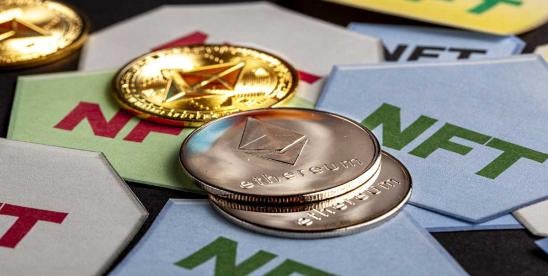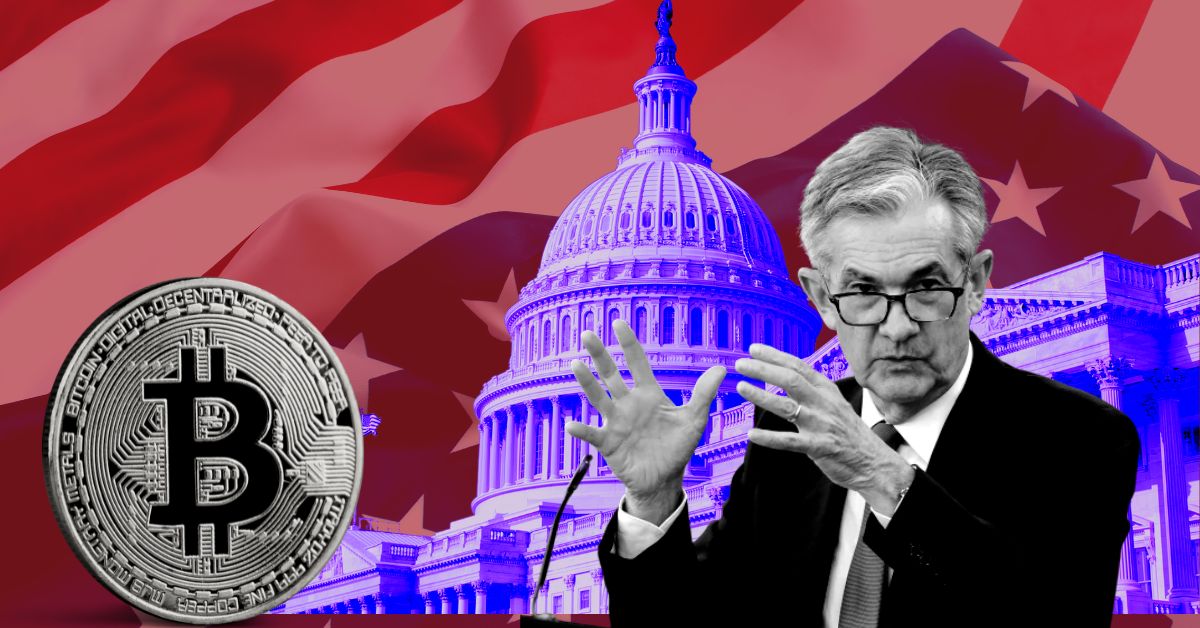Ethereum
Securities and Exchange Commission Approves Ethereum ETFs

Following the approval and launch of Bitcoin exchange-traded funds (EFTs) in January 2024, the U.S. Securities and Exchange Commission (SEC) approved eight Ethereum ETFs for listing and trading on SEC-regulated exchanges on May 23, 2024. This approval represents a significant milestone that paves the way for increased institutional and retail investment in crypto ETFs and addresses critical regulatory concerns that have surrounded Ethereum for years. The approval of these Ethereum ETFs is particularly notable in light of recent comments by SEC Chairman Gary Gensler, who suggested that Ethereum, due to its staking mechanisms, could be classified as a security under SEC regulations.
The approval of these applications came without much resistance, which is a notable departure from the controversial process that preceded the approval of Bitcoin (BTC) ETFs. As reported in our previous articleThe SEC only approved BTC ETFs after three federal judges ordered the SEC to grant approval following Grayscale Investments’ court victory. In Grayscale Investments v. SEC, the D.C. Circuit ruled that the SEC was “arbitrary and capricious” in denying Grayscale’s request to list a BTC ETF.
In contrast, this time, the SEC approved the Ethereum ETF applications on its own initiative. While this move may have been intended to avoid further litigation and public scrutiny, the approval shows a gradual move away from “regulation by enforcement” and toward actions that foster the growth of the cryptocurrency industry and investor freedom.
This article begins by explaining what the SEC approved and why. Then, our team comments on what to expect in the future and what it all means for the cryptocurrency industry and investors going forward.
The approval order
The SEC has approved the listing and trading of eight Ethereum (ETH) ETFs: Grayscale Ethereum Trust, Bitwise Ethereum ETF, iShares Ethereum Trust, VanEck Ethereum Trust, ARK 21Shares Ethereum ETF[1]the Invesco Galaxy Ethereum ETF, the Fidelity Ethereum Fund, and the Franklin Ethereum ETF. All of the ETH ETF sponsors are familiar names from the first round of BTC ETFs.
The most significant development in the approval order was the SEC’s strong implication that ETH is a commodity, not a security. The SEC approved the applications under the rules applicable to commodity-based trust shares. None of the sponsors filed applications under the Investment Company Act of 1940, which is required for ETFs that trade in securities. Furthermore, the SEC cited only court precedents involving commodities, not securities, as justification for approving the applications.
The SEC also justified its approval in a manner reminiscent of how it explained the approval of BTC ETFs. The commission cited, among other things, the high correlation between ETH spot prices and the Chicago Mercantile Exchange’s (CME) ETH futures market. This is important because the CME’s oversight of ETH spot markets would help detect any market manipulation that could affect the integrity of ETH ETFs.
The SEC’s approval of Ethereum ETFs comes with specific conditions, including a ban on staking ETH via ETH ETFs. If sponsors of these ETFs want to obtain permission to stake ETH, they will need to submit a proposed rule change and wait for SEC approval.
And after?
Although the SEC approved sponsors’ applications to list ETH ETFs on public exchanges in late May, we likely won’t see the ETFs listed for trading on those exchanges until mid- to late July at the earliest. Each sponsor must submit an S-1 filing as a registration statement and await SEC approval before the ETFs can actually be listed for trading. The SEC recently returned the submitted S-1 forms with minor comments, asking sponsors to resubmit them by July 8, 2024, delaying the planned launch. Bloomberg ETF analyst Eric Balchunas previously said that a late June launch for ETH ETFs was a “legitimate possibility,” but recently revised his prediction, suggesting a launch date of mid- to late July, pending the SEC’s review and final approval of the resubmitted S-1 forms.
As with BTC ETFs, we expect another fierce battle for market dominance. Typically, early movers in the ETF space squeeze out competitors by gaining significant market share early on. Other factors, such as brand awareness, price competition, commitment to the cryptocurrency industry, and developments in disruptive technologies, may also prove important. But at this point, it’s unclear what factors will affect the ETH ETF market and to what extent each factor will affect the market. Price and market power will likely be important to investment banks, but analyst prowess may be relatively irrelevant given that ETH ETFs are single-asset funds.
While the SEC’s approval of ETH ETFs represents a clear and positive step in classifying ETH as a commodity, the SEC remains free to argue that staking ETH is an investment contract (i.e., a security) subject to its jurisdiction. That said, the SEC cannot rationally assert that ETH alone is not a title in the case of ETH ETFs but that it East a security in other cases. If sponsors want to put ETH in ETFs, the SEC could fight back much harder than it did in approving ETF applications in the first place. Notably, the Financial Innovation Technology for the 21st Century Act (FIT21) seeks to classify ETH and many other crypto assets as commodities. The House of Representatives passed FIT21 on May 22, 2024, but the bill’s prospects in the Senate are uncertain. It remains to be seen whether FIT21 will be the first piece of federal legislation on crypto assets.
The approval order only applies to ETH ETFs, and not to any other single-asset or multi-asset crypto funds. However, the fact that the SEC has now approved two crypto ETFs shows a shift in the policy and regulatory landscape regarding crypto assets. Even though the SEC treats the “vast majority” of crypto assets as securities, the focus will undoubtedly shift to which crypto asset will be the next to get ETF approval.
Our point of view
Overall, this is a positive step forward for the SEC and the crypto asset industry, which is aggressively taking on traditional financial markets, highlighting innovative investment and technology opportunities.
The approval order demonstrates that crypto assets can begin life as a security and transform into a commodity (or other non-security) over time. Thus, Ethereum founders, and the founders of many other crypto assets, can rest easy knowing that their assets are or can become so decentralized that the SEC cannot classify them as securities.
Even after the order is approved, we still expect SEC Chairman Gary Gensler to reiterate his position that most crypto assets are still securities in the eyes of the SEC. Chairman Gensler affirmed this belief following the approval of the BTC ETFs, and again in the days leading up to the order approving the ETH ETFs. But we are optimistic that the SEC’s decision to approve two crypto ETFs demonstrates the SEC staff’s commitment to a “merit-neutral” perspective.
The approval order will spur the growth of the retail cryptocurrency market in the United States. Once the ETFs are listed on public exchanges, U.S. investors will be able to buy, sell, and hold ETH in their IRAs, 401Ks, and brokerage accounts. In the years to come, it is very possible that we will view the SEC’s decision to approve ETH ETFs as a milestone in what has become a trend of integrating crypto assets into traditional financial networks through ETFs and other financial instruments.
While the SEC’s decision is certainly a step forward for investor freedom, it does prevent investors from unlocking the full potential of their investment. The decision to prohibit sponsors from placing ETH in ETFs likely deprives investors of an average of 2.61% additional return on ETH placed for a year. The issue of staking will raise many critical questions going forward: How will sponsors and investors craft staking agreements for each ETF? What will the SEC do when a sponsor submits a proposed rule change to allow staking? Can the SEC resolve this issue amicably by cooperating with the industry, or will the courts have to decide?
We believe the SEC cannot credibly claim that ETH alone is a security in some cases but not others, so the freedom to stake ETH in ETFs should not be as big an issue as the SEC wants to make it out to be. Still, the SEC may need to hear this from a judge before conceding.
In conclusion, we would be remiss not to remind readers that good governance by crypto and ETF-savvy executives and directors, as well as sound legal advice from SEC attorneys, will all be necessary to ensure continued market success in this sector. The digital asset sector is still a young, volatile and highly creative technology sector, which is fraught with pitfalls that have been identified as legal and regulatory “risk factors” in several prospectuses.
ETFs are complex. Crypto assets are more than complex. Sponsors and banks should not seek SEC approval for a crypto asset ETF, nor should a bank, broker-dealer, or RIA enter into a contract with a crypto asset ETF sponsor or authorized participant unless directed and advised by experienced counsel.
Special thanks to Ryan Chatoo, a summer associate in Foley’s Miami office, for his contribution to this article.
[1] On May 31, ARK Invest ended its partnership with 21Shares and is no longer involved in the ETF. The SEC has allowed 21Shares to continue operating under the renamed 21Shares Core Ethereum ETF.
Ethereum
Bits + Bips with Nic Carter: Trump’s Promises, Kamala’s Change, and ETH’s ‘Narrative Problem’

Nic Carter joins the show to talk about his journey to becoming a fighter, Trump’s promises, Lummis’ Bitcoin Reserve bill, the launch of ETH ETFs, and more.
Posted on July 31, 2024 at 12:00 PM EST.
Listen to the episode on Apple Podcasts, Spotify, Pods, Fountain, Podcast Addict, Pocket casts, Amazon Musicor on your favorite podcast platform.
In this episode of Bits + Bips, hosts James Seyffart, Alex Kruger, and Joe McCann dive with Nic Carter into Trump’s game-changing promises to the crypto community, Kamala Harris’ unexpected policy changes, and Solana’s explosive rise.
Additionally, Nic reveals his unexpected journey into amateur fighting and addresses the pressing issues surrounding Ethereum ETFs and the ecosystem he’s been funding the most lately.
Highlights of the show:
- Why Alex Thinks the Conference Was One of the Most Incredible Moments in Crypto History
- Nic’s reaction to Trump’s mention of deconstructing “Operation Chokepoint 2.0,” a term coined by Nic himself
- Nic’s Karate Fight and His Journey to Becoming an Amateur Fighter
- Why Nic Thinks There’s No Chance Lummis’ Bill Proposing the U.S. Government Establish a Strategic Bitcoin Reserve Will Pass
- The Importance of Trump’s Bitcoin Nashville Promises
- How Tether compares to the Eurodollar system
- What are the potential impacts of the Fed’s language at its next meeting?
- The implications of Harris’ campaign to mend ties with cryptocurrency companies
- How the ETH ETF Launch Happened and Why Nic Says Ethereum Has a “Narrative Problem”
- How Solana Has Been Heartbreaking Lately and Joe’s Response to Some of the Criticism
- How Nic, as a VC, sees the ETH vs. SOL debate and how founders are increasingly choosing Solana
Hosts:
Guest
- Nic CarterGeneral Partner at Castle Island Ventures
Connections
Bitcoin Conference:
- Trump’s speech:
- Lummis Proposal:
- Democrats/Harris looking for a “reset”
- Letter From Democratic politicians to DNC chair to include crypto in Democratic party platform:
ETH ETF Launch:
Solana rocks:
Ethereum
Bitcoin, Ethereum in the red as markets crash on volatility

Bitcoin And Ethereumalong with the rest of the top 10 crypto assets by market cap, look gloomy Thursday morning.
At the time of writing, the Bitcoin Price is still below $65,000 and 2.2% lower than it was at this time yesterday, according to CoinGecko data. Things are worse for the Ethereum Priceor 3.7% lower than 24 hours ago at $3,185.22. The drop in ETH price is in line with that of Lido Staked Ethereum (stETH), a liquid Ethereum staking token.
Over the past day, falling prices led to the liquidation of $225 million worth of derivative contracts, according to Coin glass. And about half of them, or about $100 million, have been liquidated in the last 12 hours.
When a trader is liquidated, it means that their market position has been forcibly closed by an exchange or broker due to a margin call or insufficient collateral. Margin is especially relevant when it comes to leveraged positions, which allow traders to control a multiple of their deposit, such as opening a $10,000 position with only $1,000 in their account.
Now that Bitcoin has posted three consecutive days of losses, it is possible that the world’s oldest and largest cryptocurrency could sink even further, BRN analyst Valentin Fournier said in a note shared with Decrypt.
“For three consecutive days, Bitcoin has closed negative, with one-way trades showing limited resistance from the bulls. Ethereum had a slightly positive Monday with strong resistance from the bears who have gained over the past two days,” he wrote. “This momentum could push BTC down towards the $62,500 resistance or even the $58,000 territories.”
Looking ahead, Fournier said BRN’s strategy will be to “reduce exposure to Bitcoin and Ethereum and find a better entry point after the dip.”
All this despite the fact that Federal Reserve Chairman Jerome Powell’s comments on interest rates yesterday were generally perceived as being accommodating and indicates that the FOMC cut rates in September.
QCP Capital, a Singapore-based cryptocurrency trading firm, noted that the rally in stocks, which left the S&P 500 starting the day 1.6% higher than its Wednesday close, was not felt in cryptocurrency markets.
“Cryptocurrencies saw a massive selloff overnight and this morning,” the firm wrote in a trading note. “The market remains on edge, with traders paying close attention to daily ETH ETF outflows and further supply pressures from Mt Gox and the US government.”
Meanwhile, the rest of the major pieces are a mixed bag.
Solana (SOL) has dropped 7.2% since yesterday to $169.13. Things are even worse for its most popular meme coins. In the last 24 hours, popular meme coins Dogwifhat (WIF) have dropped 12% and BONK (BONK) has dropped 9%, according to data from CoinGecko.
Their dog-themed competitor and Ethereum OG Dogecoin (DOGE), the only meme coin in Coingecko’s top 10, has dropped nearly 4% since yesterday and is currently trading at $0.1205.
XRP (XRP) fell to $0.608, down 7% from the same time yesterday.
Binance’s BNB Coin (BNB) has kept pace with BTC and is currently trading at $571, down 2.4% since the same time yesterday. Toncoin (TON), the native token of The Open Network, has only fallen 0.4% over the past day.
There remain the stablecoins USDC (USDC) and Tether (USDT), both of which are stable because they maintain their 1:1 peg with the US dollar.
Ethereum
FOMC Holds Interest Rates Steady, Bitcoin and Ethereum Prices Fall

Chairman of the Federal Reserve Jerome Powell
Jerome Powell Jerome Hayden “Jay” Powell is an American lawyer and investment banker who has served as the 16th Chairman of the Federal Reserve since 2018. Finance recently hinted at a potential rate cut in September, sparking a sharp rise in the stock market. The tech-heavy Nasdaq 100 rose 3.3%, and the S&P 500 rose 2%. In contrast, Bitcoin (BTC) fell 1.3% to $66,088 and Ethereum (ETH) The global cryptocurrency market fell by 1.11% to $3,313. Over the past 24 hours, the global cryptocurrency market capitalization also decreased by 0.71% to $2.39 trillion.
Market analysts believe that the decline in cryptocurrency prices is a short-term decline. Despite a bear market, Bitcoin and other cryptocurrencies are showing bullish signals. Bitcoin is still struggling to break the $70,000 mark, but its performance in August, ahead of potential rate cuts, will be closely watched.
Federal Reserve remains stable
On July 31, the U.S. Federal Reserve concluded a two-day meeting of the Federal Open Market Committee (FOMC) by deciding to keep benchmark interest rates unchanged at 5.25%-5.50%. The move met Wall Street expectations and marked the eighth consecutive meeting without a rate change.
Towards a market rebound?
According to SantimentThe FOMC’s decision to maintain current interest rates led to an initial decline in cryptocurrency prices. Traders were hoping for a rate cut, which hasn’t happened since March 2020. A future rate cut could signal bullish trends for stocks and cryptocurrencies, potentially boosting markets for the remainder of 2024. Despite the initial sell-off, markets are likely to stabilize unless another major event impacts the cryptocurrency sector.
Bullish outlook, bearish sentiment
The aggressive buildup of rate hikes and rising negative investor sentiment could pave the way for a substantial market rally. Despite the anticipation surrounding the FOMC meeting, the impact on cryptocurrencies was limited as the rate pause had already been priced in.
Previous Fed decisions have had minimal impact on Bitcoin prices.
A look into the past & the future
Historically, FOMC actions affect all asset classes. In 2020 and 2021, Bitcoin and other altcoins soared when the Fed cut rates to zero, only to reverse course in 2022 when rates began to rise. Investors have since moved trillions of dollars into lower-risk assets, with money market funds amassing over $6.1 trillion, enjoying an average return of 5%.
Key indicators to monitor
Bitcoin’s immediate resistance is noted at $66,852, with support at $65,000. The Relative Strength Index (RSI) is signaling oversold conditions, suggesting further declines are possible if the price falls below $65,900.
Investors are now closely watching the FOMC meeting for clues about inflation and economic growth, which could influence Bitcoin’s next move. The interplay between the Federal Reserve’s decisions and market reactions will be crucial in determining the future trajectory of cryptocurrencies and traditional assets.
Read also : Why is Bitcoin price down today? Is a major correction imminent?
The Fed’s decision has caused a stir in the market. Will this impact your investment strategy?
Ethereum
Tron’s Justin Sun Hints Ethereum Selloff Could Happen Due to ETF Outflows

Justin Sun, the founder of Tron DAO, has hinted at a major Ethereum (ETH) selloff following a series of transactions that have garnered considerable attention. Sun has unlocked a significant portion of his ETH stash. Additionally, he has transferred some of this ETH to Poloniex, a major cryptocurrency exchange.
Justin Sun hints at massive Ethereum selloff
Observers were particularly intrigued by the movement of 1,768 ETH (worth about $5.9 million) unstaked by Lido, according to data from Peck Shield Alert. Additionally, the subsequent transfer of 810 ETH, valued at about $2.7 million, to Poloniex cryptocurrency exchange
raised speculation about a massive Ethereum selloff.
The Ethereum price crash in early July, which saw a 10% drop, further fueled speculation in the market. This slowdown contributed to an 8% drop in the global cryptocurrency market capitalization. Moreover, one of the most notable impacts was a potential $66 million loss for Justin Sun at the time.
According to a report by Spot On Chain, Sun’s vast network Ethereum The holdings were severely impacted by the market downturn on July 5. Between February and June 2024, Sun accumulated a substantial amount of Ether, totaling 361,137 ETH across three separate wallets.
His acquisitions included 169,604 ETH in February at an average price of $2,870, 176,117 ETH in April at $3,177, and 15,416 ETH in June at $3,474. Just one day before the significant price drop, Sun reportedly made a profit of $58 million from these holdings.
However, the market crash on July 5th turned those gains into a staggering $66 million loss. At the height of the crisis, the price of Ethereum fell below $2,800. Although it has since rebounded above $3,300 following the launch of new ETFs, this event triggered a “sell the news” reaction among investors.
Moreover, despite the rebound, the price of ETH has remained below the average value of Sun’s third acquisition. Therefore, the latest concerns about Ethereum selling are not unfounded. This could be a loss mitigation measure, as Sun usually holds his ETH tightly.
Read also : 21Shares Uses Chainlink to Verify Ethereum ETF Reserves
ETH ETF Fund Outflows
Adding to the intrigue, flows from Ether exchange-traded funds (ETFs) have been consistently negative. On Monday, July 29, Ethereum Spot ETFs saw outflows totaling $98.3 million. Additionally, Grayscale’s Ethereum Trust (ETHE) alone accounted for $210 million in outflows, accelerating the outflow streak.
However, notable inflows were seen at Blackrock, Fidelity, and Bitwise, recording $58.2 million, $24.8 million, and $10.4 million, respectively. Despite these mixed signals, the price of Ethereum has remained relatively stable. The price of Ether is currently fluctuating between $3,300 and $3,400.
Ethereum Liquidation Chart, Source: Coinglass
At the time of going to press, the ETH Price fell 1.04% to $3,325.16 on Tuesday, July 30 with a market cap of $401 billion. Additionally, a broader sell-off in Ethereum was seen in the market with long liquidations of $33.58 million, according to Coin glassMeanwhile, shorts liquidated about $6.87 million of positions.
Read also : Ethereum Client Releases Important Stability Patch Ahead of Pectra Upgrade
-

 Regulation11 months ago
Regulation11 months agoRipple CTO and Cardano founder clash over XRP’s regulatory challenges ⋆ ZyCrypto
-

 Regulation10 months ago
Regulation10 months agoNancy Pelosi Considers Supporting Republican Crypto Bill FIT21 – London Business News
-

 Videos11 months ago
Videos11 months agoCryptocurrency News: Bitcoin, ETH ETF, AI Crypto Rally, AKT, TON & MORE!!
-

 Regulation11 months ago
Regulation11 months agoBitcoin’s future is ‘bleak’ and ripe for regulation, says lead developer
-

 News8 months ago
News8 months agoAave Price Increases Following Whales Accumulation and V3.1 Launch
-

 Regulation8 months ago
Regulation8 months agoA Blank Sheet for Cryptocurrencies: Kamala Harris’ Regulatory Opportunity
-

 Regulation8 months ago
Regulation8 months agoSouth Korea Imposes New ‘Monitoring’ Fees on Cryptocurrency Exchanges
-

 Regulation8 months ago
Regulation8 months agoCryptocurrency Regulations in Slovenia 2024
-

 News11 months ago
News11 months agoThe trader earned $46 million with PEPE after reaching a new ATH
-

 Regulation10 months ago
Regulation10 months agoCrypto needs regulation to thrive: Tyler Cowen
-

 Blockchain11 months ago
Blockchain11 months agoSolana ranks the fastest blockchain in the world, surpassing Ethereum, Polygon ⋆ ZyCrypto
-

 Blockchain10 months ago
Blockchain10 months agoSolana Surpasses Ethereum and Polygon as the Fastest Blockchain ⋆ ZyCrypto





